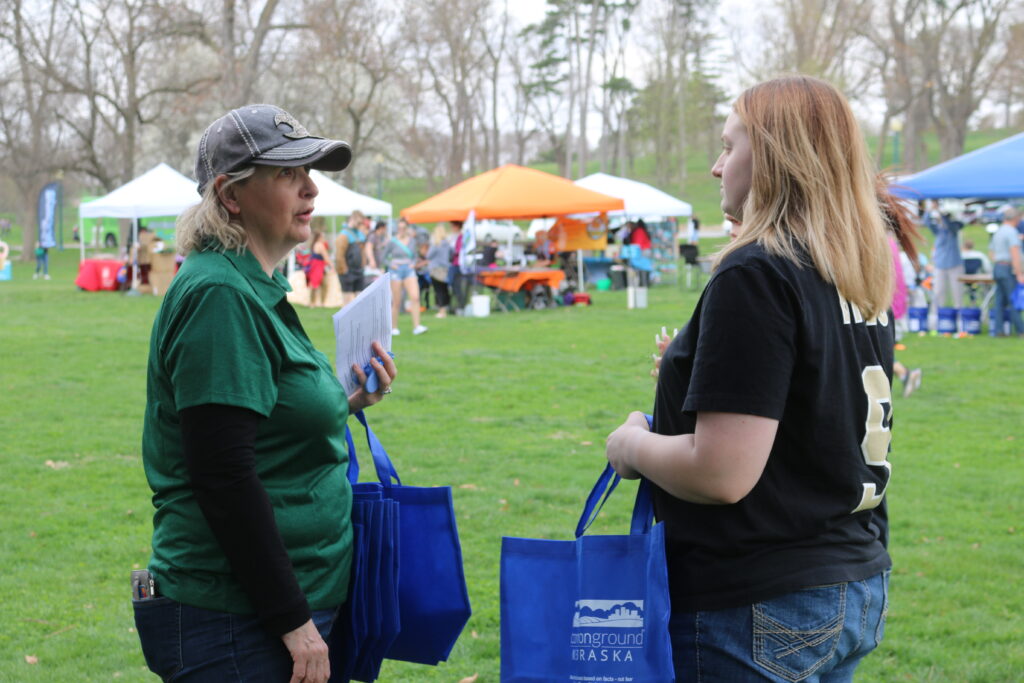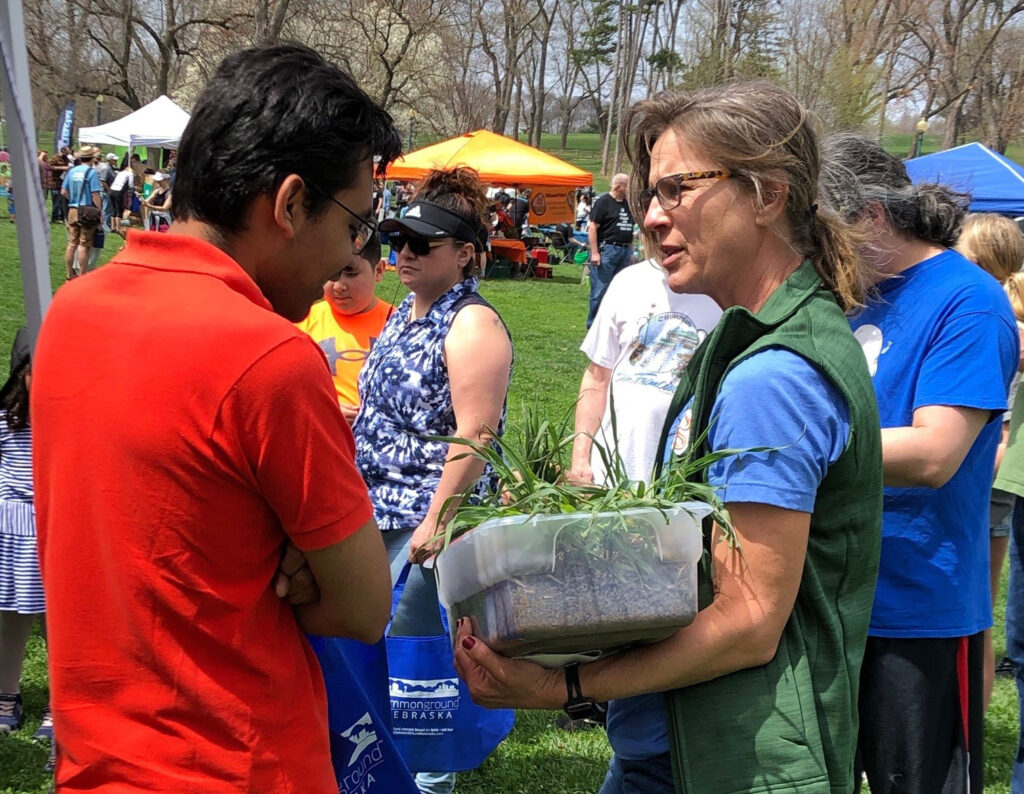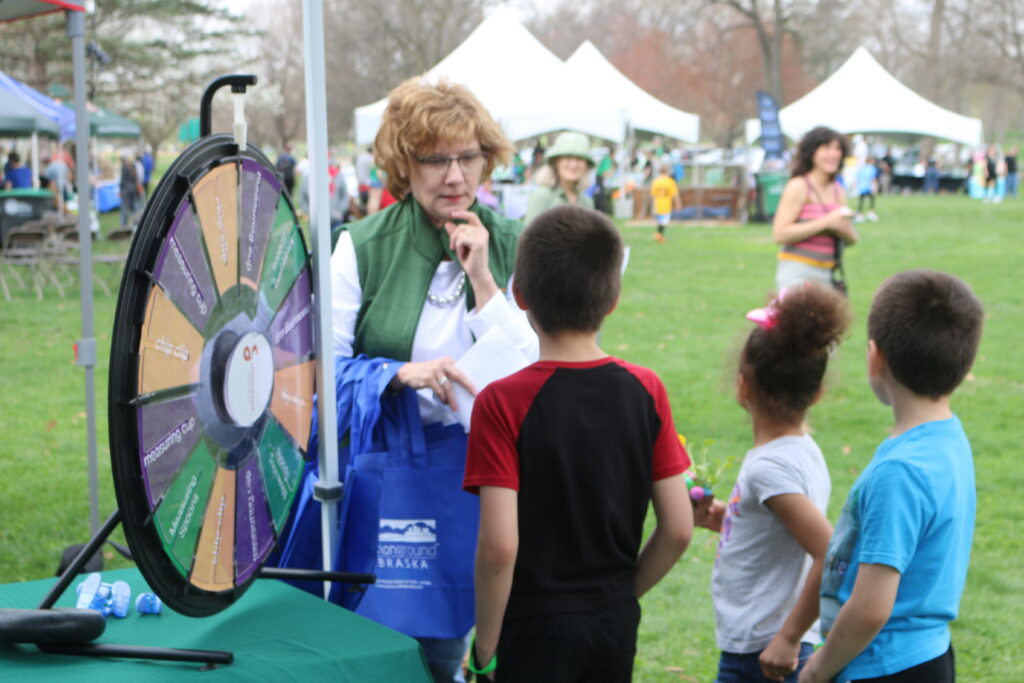The world is focused on the environment and carbon reduction as never before. CommonGround volunteers Kelly Witte, Joan Ruskamp, Wendi Emanual, Rene Blauhorn, and I were onsite at Earth Day Omaha in Elmwood Park Saturday, April 23, to meet and greet attendees. Many organizations representing efforts to reduce the environmental footprint were there, ranging from the Sierra Club to PETA. It was fitting that Nebraska farmers who steward over 44 million acres of land in our state were there to share agriculture’s advancements in sustainability. Farmers are caring for native grasses in the sandhills and utilizing no-till and cover crop farming practices in row crop production. Our livelihood and the success of our posterity depends on improving soil health and reducing water usage on this path for continuous improvement.

Being onsite at Earth Day Omaha gave us the opportunity to have conversations with consumers about pesticide use, animal agriculture, GMOs, renewable fuels and soil health. Conversations were mostly positive, with an appreciation for farmers who work every day to provide safe, affordable and healthy food. However, I did have some controversial conversations concerning biofuels and the environment, as well the use of pesticides on our farms. It is often easier to blame and accuse, but I would challenge those who want to truly improve the environment to embrace climate-smart farming practices and empower farmers. As Erin Fitzgerald, CEO of US Farmers and Ranchers in Action, has eloquently stated, “Farmers and ranchers represent a vast eco-workforce with intimate knowledge of the land and climate. They have the experience to be a powerful force in solving the world’s greatest climate problems.” That is an awesome privilege and responsibility.


